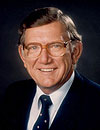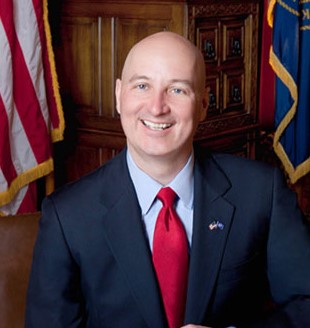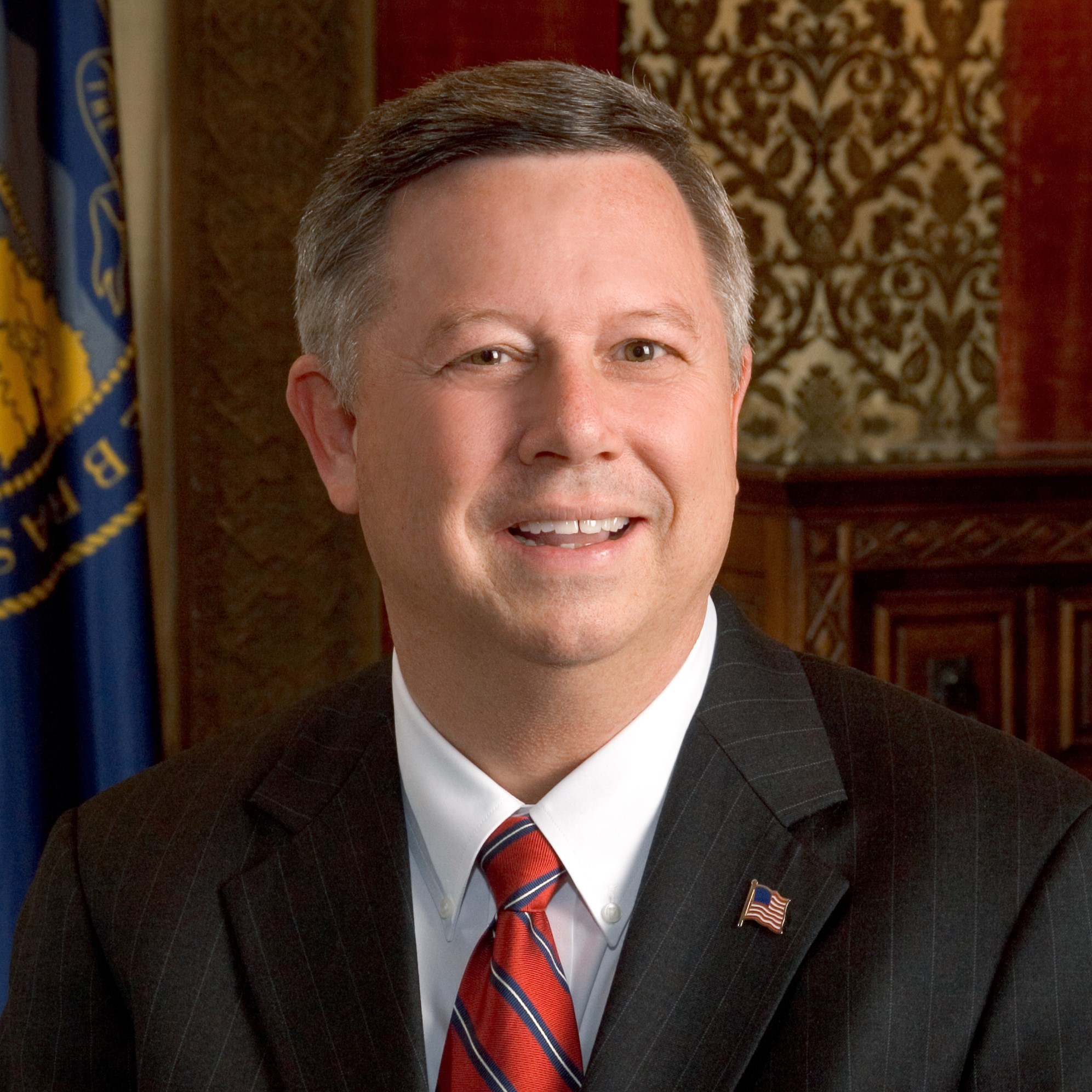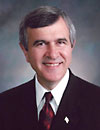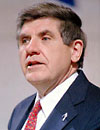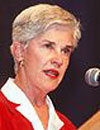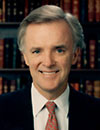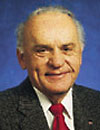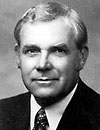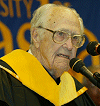This website uses cookies so that we can provide you with the best user experience possible. Cookie information is stored in your browser and performs functions such as recognizing you when you return to our website and helping our team to understand which sections of the website you find most interesting and useful. Please see our privacy policy for more information.
Nebraska
Gov. John James Exon
- January 7, 1971 - January 3, 1979
- Democratic
- September 9, 1921
- June 10, 2005
- South Dakota
- University of Omaha
- Married Patricia Pros; three children
- Senator
- Army
About
J. JAMES EXON was born August 9, 1921, in Geddes, South Dakota. He attended the University of Omaha and served in the U.S. Army Signal Cops from 1942 to 1945 and the U.S. Army Reserve from 1945 to 1949. Following World War II, Exon returned to Nebraska and began a successful business career with the Universal Finance Corporation. Eight years later, he became an independent businessman, founding Exon’s Incorporated, which grew into one of Nebraska’s best-known office equipment companies Exon entered politics as vice chair of the Nebraska State Democratic Central Committee from 1964 to 1968, and he was a Democratic national committeeman from 1968 to 1970. In his first run for office, Exon was elected Governor of Nebraska in 1970 and re-elected in 1974. As governor, he applied his business skills of fiscal responsibility to state government, where he balanced the state’s budget for eight consecutive years. During his tenure, Governor Exon was a member of the Education Commission of the States and he served on the Executive Committee of the National Governors’ Conference. Governor Exon chaired the Midwestern Governors’ Conference in 1974. After serving as governor, he went on to become a U.S. Senator from Nebraska from 1979 to 1997. During his 18 years in the Senate, Exon served on the Budget Committee, rising to become the Democratic leader of that committee; the Armed Services Committee, where he served as both chair and ranking minority member of the Strategic Forces Subcommittee; and on the Commerce Science and Transportation Committee. He also became well known for his attempts to censor the Internet.

